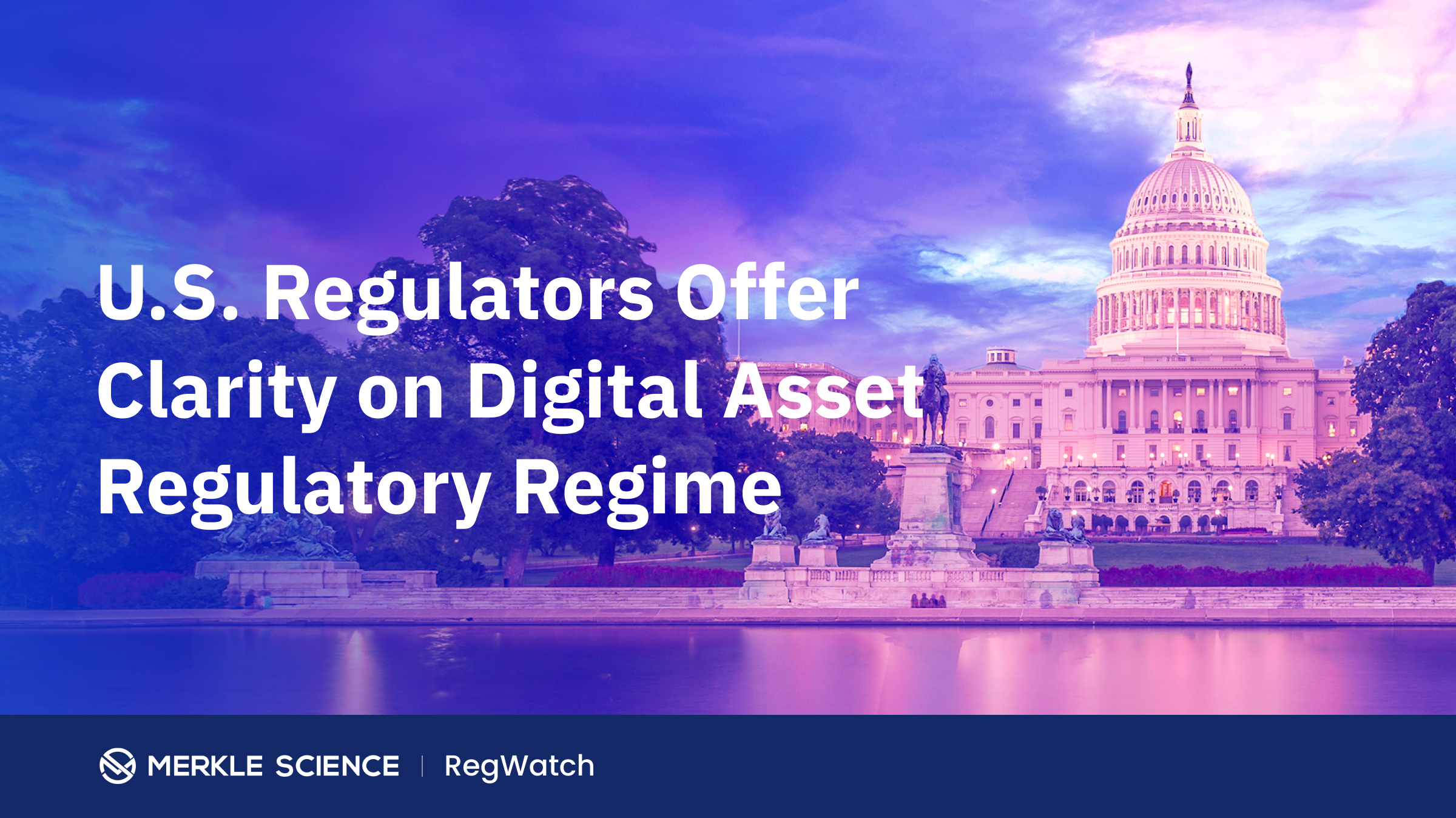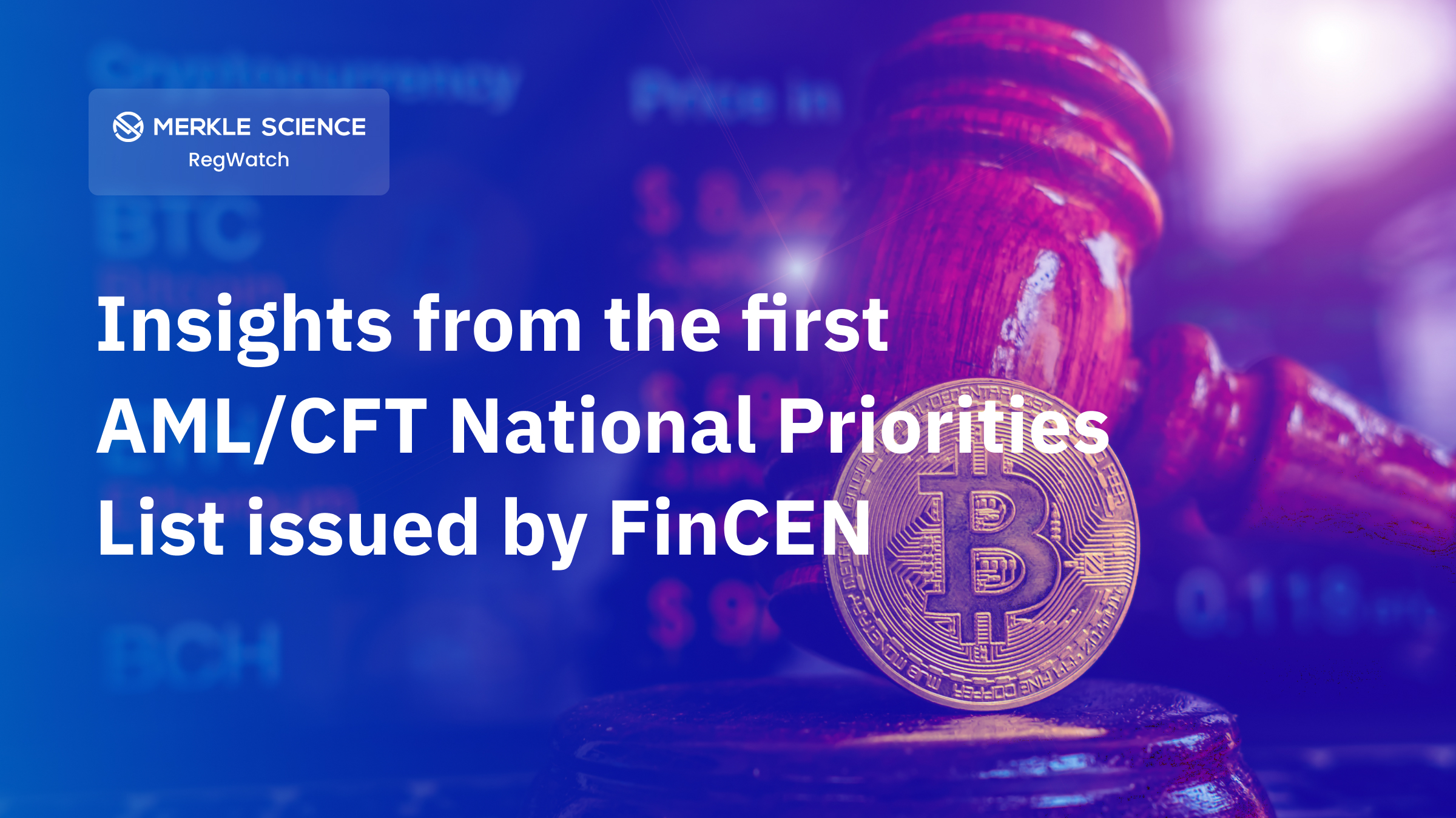Following the fourth Financial Action Task Force (FATF) Plenary Meeting in June 2021, panelists Siân Jones (Senior Partner, Xreg Consulting), Pelle Brændgaard (CEO, Notabene) and Mriganka Pattnaik (CEO, Merkle Science) spoke with Ian Taylor (Chair, CryptoUK) about some of the key concerns raised by the FATF in its official release highlighting the outcome of the plenary session.
For those who missed the live discussion or would like to listen again, the full webinar can be found here. Below are key takeaways that the Virtual Asset Service Providers (VASPs) should take note of:
Challenges Deterring Jurisdictions from Ensuring Strict and Timely Compliance with The Travel Rule
During the Plenary Meeting, the FATF drew attention to gaps in the implementation of Recommendation 16 also known as the Travel Rule. The global financial watchdog, the FATF, noted that a majority of jurisdictions still have not yet implemented the Travel Rule. According to the FATF, this implementational gap can enable continued misuse of virtual assets through jurisdictional arbitrage. Therefore, the FATF made it clear that timely compliance with the Travel Rule by the jurisdictions is not an option, but a requirement.
However, even though the meaning of the Travel Rule is clear, its execution poses certain challenges. As per the Travel Rule, the originators and beneficiaries of all digital fund transfers must exchange identifying information. Our panelists highlighted some of the main challenges in its implementation.
VASPs continue to encounter the “sunrise” problem, whereby the lack of regulatory cross-border clarity, a uniform timeline for implementation of compliance standards and widely differing regulatory expectations affect the VASPs’ global transactions.
The interoperability of different Travel Rule solutions is vital to ensure comprehensive coverage when facilitating transactions with the VASPs across the crypto community. While competing Travel Rule solutions have emerged in the last few years, these solutions continue to be plagued by interoperability issues owing to the differences in their fundamental features such as governance systems, data ownership, etc. Therefore, in line with the statement made by the FATF, when it comes to interoperability it is essential to set common global technical standards for the implementation of Travel Rule solutions.
What the Industry Can Do to Overcome the Challenges in Travel Rule Implementation
The VASPs that are looking to overcome the ‘sunrise problem’ should not only monitor the regulatory requirements of their own jurisdictions but also those of their counterparties — those from whom VASPs are sending and receiving funds. Further, even if the regulators in the VASPs’ jurisdictions are not obligating compliance with the Travel Rule, then the VASPs should proactively implement the Travel Rule on their own.
The crypto industry has also taken some steps towards overcoming the interoperability problem. In May 2020, the InterVASP Messaging Standard or IVMS101 was launched, this standard was developed to create a universal language for communication of required originator and beneficiary information between the VASPs. Despite the non mandatory nature of these standards, a large number of Travel Rule solutions such as CoolBitX’s Sygna Bridge have committed to adopting IVMS101 but still have a long way to go in overcoming interoperability issues.
FATF Extends the Publication of Revised Guidance on Virtual Assets and VASPs
The FATF extended the deadline for the finalization of the FATF’s revised draft updated guidance on Virtual Assets and VASPs. This delay may be due to the outpouring concerns received by the FATF from the crypto industry, specifically around expanding the definition of VASPs to regulate DeFi and unhosted wallets.
Siân Jones noted that the draft updated guidance reflects the FATF’s belief that no technology should be completely decentralized. As per the guidance, decentralized applications also have “central parties” that are involved in creating, launching, setting parameters, holding an administrative key and all such entities will now fall under the definition of VASPs.
This expansive definition may create problems both for the regulators and developers alike. On the one hand, due to the decentralized nature of the project, the regulators may find it difficult to identify specific entities within the definition of VASPs responsible for implementing AM/LCFT guidelines. On the other hand, VASPs may have to dedicate vast resources to ensure AML/CFT compliance — ultimately detracting from their businesses’ core competencies. While discussing the implications of regulating DeFi under the draft updated guidance, Mriganka Pattnaik, observed that, given the complexities of DeFi, the DeFi platforms may bear higher compliance costs in comparison to the centralized VASPs.




.png)
.png)
-1.png)
.png)




